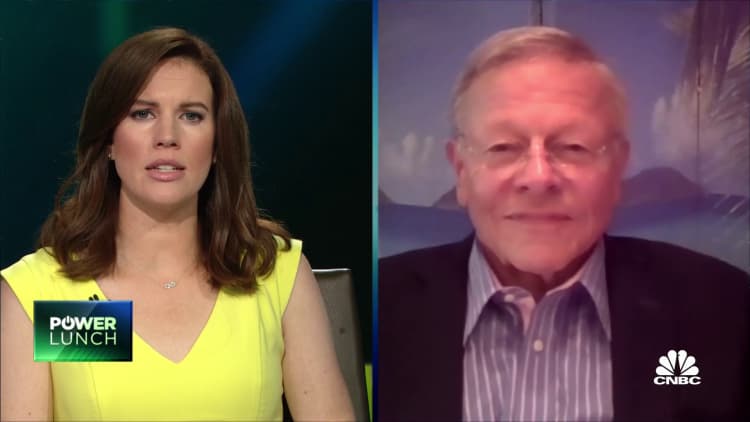
The Dow Jones Industrial Average declined for a fifth straight day Friday as economic uncertainty loomed.
The blue-chip index shed 271.66 points to close at 34,607.72. The S&P 500 dipped nearly 0.8% to 4,458.58, and the Nasdaq Composite retreated about 0.9% to 15,115.49.
Apple was the biggest laggard weighing on the Dow, down 3.3%. The tech giant can no longer force developers to use in-app purchasing, a federal judge ruled Friday in a closely watched trial between Apple and Epic Games.
The S&P 500 and the Dow haven't recovered since the poor jobs report last Friday, falling each day since, including all four trading days of this holiday-shortened week.
For the week, the Dow is down roughly 2.2% in its second negative week in a row. The S&P 500 is off about 1.7% for the week, while the Nasdaq Composite is 1.6% lower.
Investors are worried about persistent Covid cases slowing the economy just as hot inflation causes the Federal Reserve to take away easy policies.
"It's been a week that's really taken its cue from the delta variant," said Jack Ablin, Cresset Capital Management's founding partner and CIO. "Investors are wringing their hands over growth but are seeing higher inflation at the same time."
The August producer prices index released Friday showed wholesale costs for businesses rose 8.3% on an annual basis, its biggest advance on record since at least 2010. The PPI accelerated 0.7% for the month, above the 0.6% Dow Jones estimate. The more important consumer price index for August will be released on Tuesday.
The Federal Reserve kicks off a two-day meeting on Sept. 21, and the Street will be watching for an update on the central bank's bond-buying program. On Thursday, the European Central Bank left its monetary policy unchanged, but said that it will slow the pace of its asset-purchase program.
"The pace of policy changes will be gradual enough not to derail the economic recovery or the equity rally, while the differences between the more hawkish and more dovish central banks will create opportunities," said Mark Haefele, UBS Global Wealth Management chief investment officer.
"We expect major central banks to remain supportive of growth, keeping rates lower for longer. This is positive for equity markets, particularly cyclical and value areas of the market," he added.
President Joe Biden stiffened his stance on getting Americans vaccinated on Thursday, outlining a plan to mandate Covid vaccines for millions. Federal employees will be required to get a Covid vaccine and the president is asking the Labor Department to require employers with more than 100 employees to mandate vaccines or weekly testing.
"Ultimately, we see stocks finishing September strongly," wrote Fundstrat's Tom Lee in a note to clients late Thursday. "Delta variant organically looks to be slowing... White House plan really brings hammer to containing COVID-19."
Become a smarter investor with CNBC Pro.
Get stock picks, analyst calls, exclusive interviews and access to CNBC TV.
Sign up to start a free trial today



